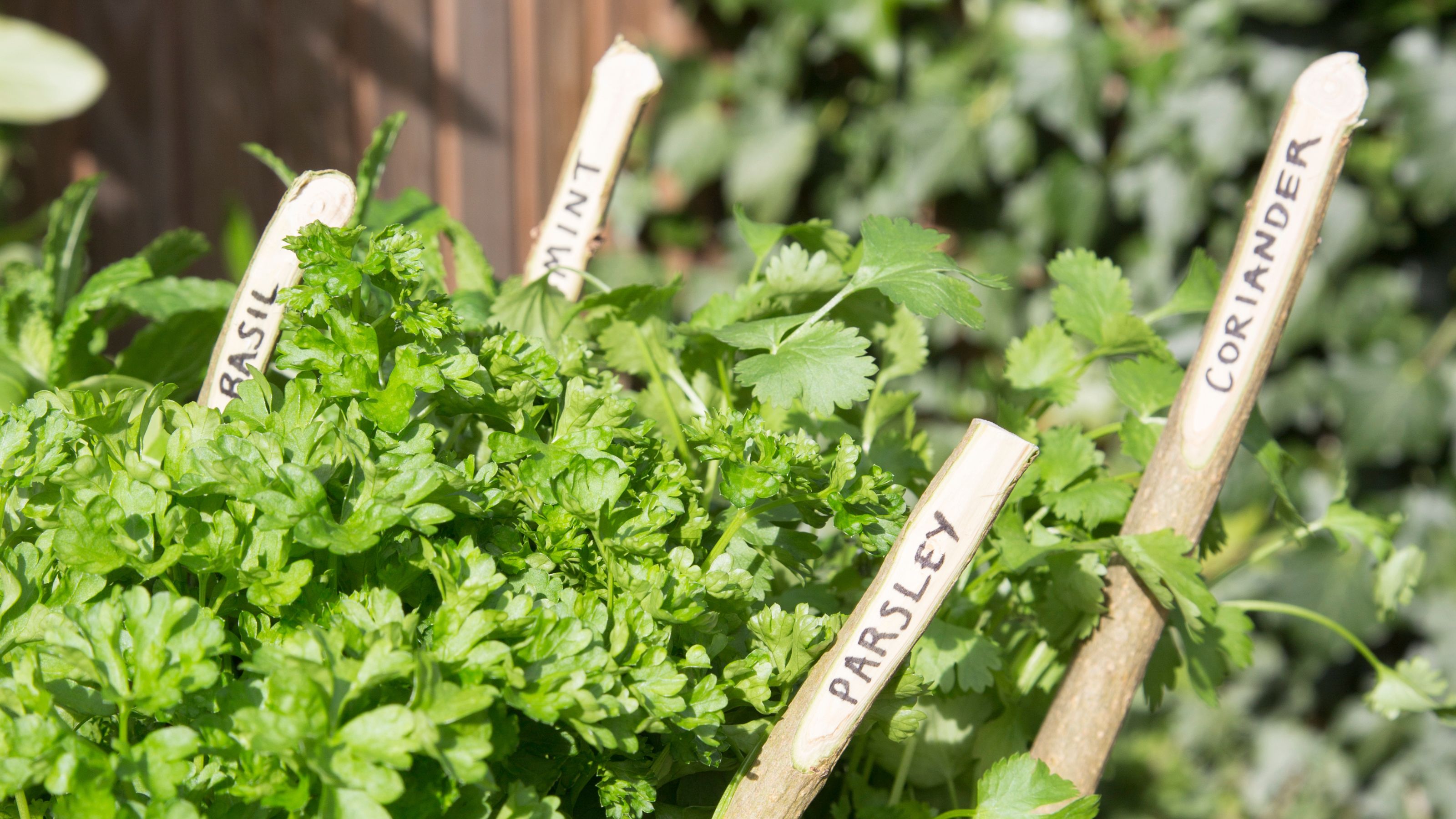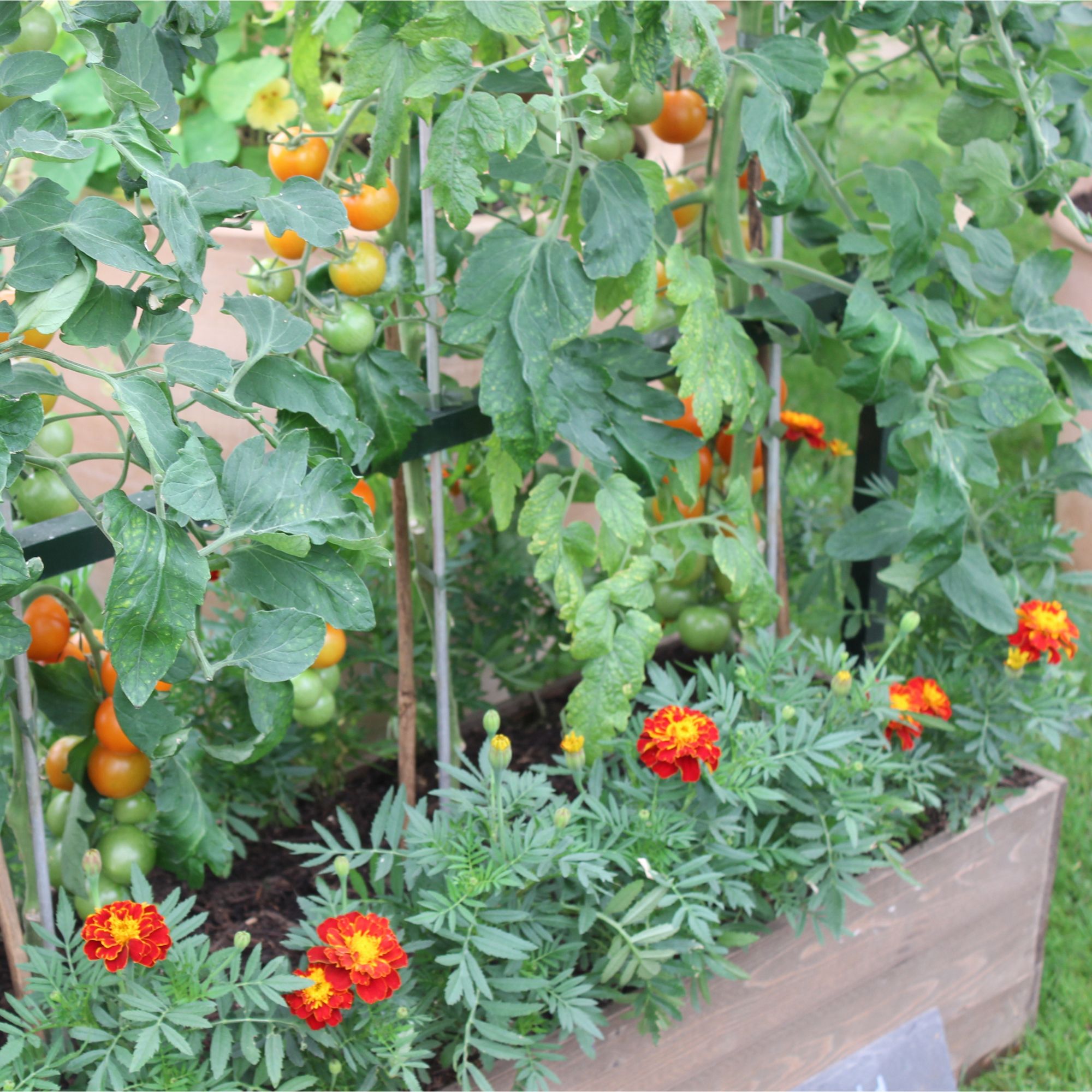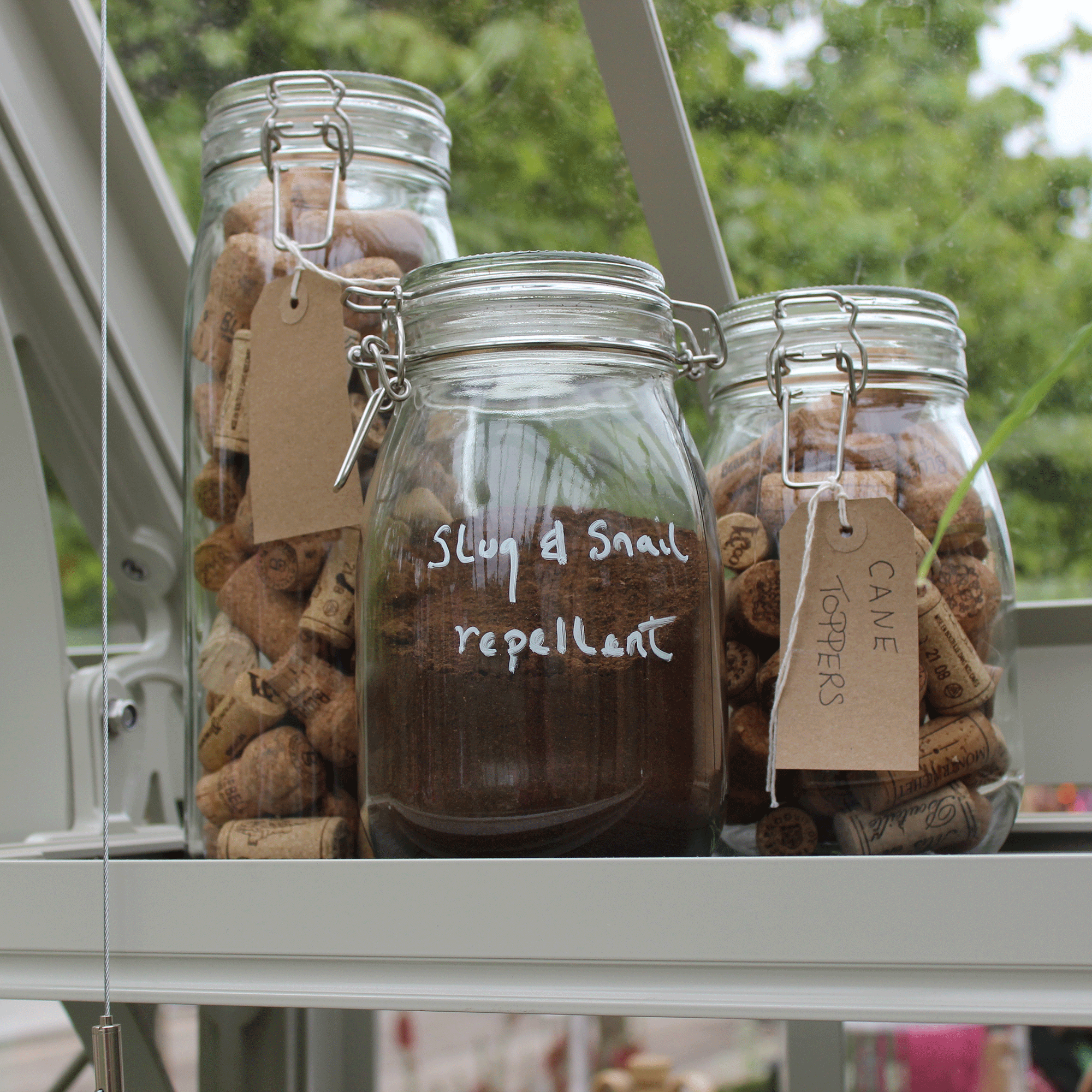How to stop pests eating your herbs – 3 tried and tested methods to protect your herb garden naturally
Expert methods for keeping your herb garden pest-free


Sign up to our newsletter for style inspiration, real homes, project and garden advice and shopping know-how
You are now subscribed
Your newsletter sign-up was successful
If you've been wondering how to stop pests eating your herbs, you're facing one of the most frustrating gardening challenges. Watching your carefully tended basil, mint, and parsley getting devoured by unwanted visitors isn't fun, especially if you've been readying to harvest your herbs to use in the kitchen.
According to the experts, protecting your garden herb ideas from pests doesn't have to mean reaching for harsh chemicals that you don't want near your dinner ingredients. Their top tips include attracting natural predators and utilising organic deterrents to keep garden nuisances at bay.
I've asked the pros to share their tried-and-tested methods for how to stop pests eating your herbs, so you can enjoy a thriving, pest-free harvest all summer long.
1. Encourage natural predators

A lesser known tip for how to stop pests eating your herbs is to use natural predators. For instance, you can try planting some of the plants that attract ladybirds, such as marigold, yarrow, and cosmos. Any aphids feeding off these plants will be eaten by the ladybirds, which will in turn keep the little green pests off your herbs too.
'Another way to attract small predators like ladybirds and lacewings is by installing a bug hotel nearby to make your garden more wildlife-friendly,' Tim West, pest control expert at Merlin Environmental suggests. This insect house, £7.99 from Amazon, would be the ideal aid.
Small garden pond ideas are particularly effective at attracting frogs to your garden, which will help get rid of slugs, spiders, and caterpillars. You'll also get a pretty water feature to boot.
2. Add copper tape to pots

For potted herbs, make the most of the having a solid surface and stick copper tape to the pots. You can buy this relatively cheap - there's a 20mm x 25m roll of copper tape available on Amazon for just £6.99.
Sign up to our newsletter for style inspiration, real homes, project and garden advice and shopping know-how
'Copper tape is a simple, chemical-free solution for getting rid of slugs,' Sophie Thorogood, technical training manager at Pest-Stop says. 'Slugs dislike the sensation of crawling over copper, so placing a band around pots can stop them in their tracks.'
3. Try organic deterrents

Aside from adding pest-repellent plants to your garden, you can use organic produce to deter pests away from your herbs as well. 'Placing crushed eggshells or diatomaceous earth around the base of your herb plants will deter crawling pests,' Tim explains. 'Neem oil spray can also help to control certain flies without harming the insects you do want around.'
Crushed eggshells act as a barrier, preventing slugs and snails from crawling over the soil and onto your herbs. But, this won't work for flying pests and smaller insects. For these, try the DD Organic Neem Oil Spray, £12.49 at Amazon, which works against aphids, whiteflies, mealybugs, and scale insects.
FAQs
How to stop insects eating leaves?
There are several methods you can try if pesky insects are eating your plants' leaves. Companion planting is a popular one, whereby you strategically plant certain herbs together to reduce pest activity.
'Marigolds are thought to be effective at keeping insects like aphids away from plants, and their brightly coloured flowers can attract pollinators to improve garden health,' Richard Barker, commercial director of LBS Horticulture says. 'Most insects will be repelled by members of the allium family, such as garlic, onions and chives, due to their strong scent and should be planted around high value plants.'
What can you spray for herbs?
Garlic spray is a great natural insecticide, and particularly helpful for getting rid of aphids and mites that have taken a liking to your herbs.
'Garlic contains sulphur compounds, and has an active compound known as Allicin that is responsible for the strong smell that repels insects,' Richard explains. 'Homemade garlic spray can be applied every two weeks, and like neem oil it will need to be reapplied after rain.'
Now you know how to stop pests eating your herbs, you can look forward to enjoying a fresh harvest all summer long.

Katie has been writing freelance since early 2022, specialising in all things homes and gardens, following achieving a Masters in Media and Journalism. She started out writing e-commerce content for several of Future’s interior titles, including Real Homes, Gardeningetc, Livingetc, and Homes and Gardens. Since then she’s been a regular contributor on Ideal Home’s digital team, covering news topics, how-to guides, and product reviews.